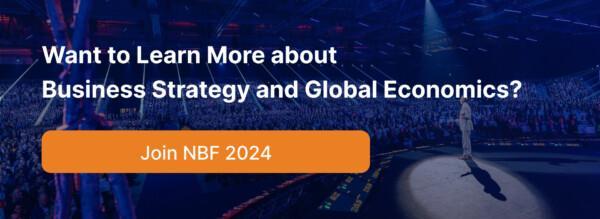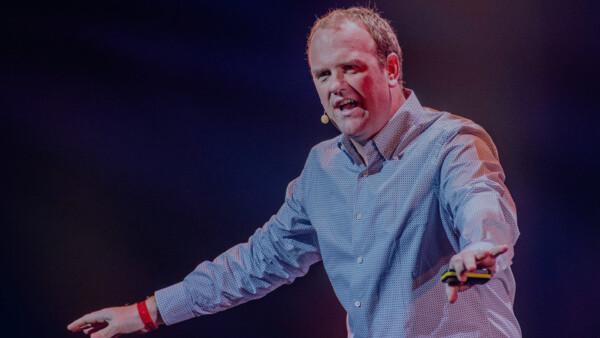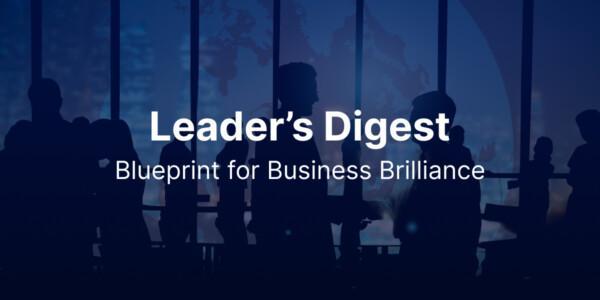15Apr2024
In our recent conversation with Stéphane Garelli—Professor Emeritus of World Competitiveness at IMD Business School and the University of Lausanne, and the founder of the World Competitiveness Center—we explored the evolving dynamics of global competitiveness. Stéphane shared his insights on the current state of global competitiveness and the strategic challenges businesses face, and also offered actionable advice for leaders. Let’s dive right in!
The Evolving Global Competitive Landscape
The operating environment for businesses has changed dramatically over the past decade. Stéphane describes the transition from a period of “pure globalization” to what he terms “the age of vulnerability” and then most recently the shift to a “fractured world economy.”
He explained that since 1978 with China’s open door policy, for 40 years we’ve had an era of open, global markets. However, during the pandemic, we started shifting to a more segmented and protectionist stance that focused on national security over job security. “Governments started to put in place some measures of protectionism, which are not so much directed at protection of jobs, but protection of national security. And this is a totally different game.”
According to Stéphane, what lies ahead of us now is an era of a “fractured world economy.” What he means by this is that markets are open and business is global, but simultaneously all countries and businesses want to have their own platforms, own payment systems, and so on. Additionally, many countries are adopting a multi-aligned approach. Countries such as China, Turkey, and Saudi Arabia don’t want to choose their partners but rather try to cooperate with both the Western countries and Russia for instance.
What does this mean for businesses? Stéphane thinks this makes the operating environment even more complex.
“I think that the decisions from governments increasingly impact companies. It’s going to become more complex and slower for businesses to operate. And it will have an impact on the strategies and the structure of companies.”
Strategic Challenges and Opportunities
In response to these challenges, Stéphane outlines three strategic imperatives for businesses: securing the supply chain, safeguarding assets, and ensuring operational security.
According to Stéphane, securing the supply chain is crucial as we are moving from business efficiency to business reliability. “Reliability is the name of the game.” He mentioned that one aspect businesses should take into account in regards to this is diversification. For example, Apple has expanded its production operations from China to India to secure its supply chain. The other aspect is to “get closer to markets where the government is more friendly to you.”
Securing assets is the second strategic imperative Stéphane suggested. He sees that more and more companies are taking a closer look at their assets abroad and thinking how they can protect them. While 100% ownership was the goal before, now joint ventures, divestment, and even selling have become more topical in some businesses. “Companies do not like to talk about that obviously, but I think it is in the minds of many CEOs today.”
Stéphane suggested that the third concern for businesses is securing operations, which refers to the security of intellectual property, data, etc. Many companies and even countries are taking different measures to tackle this challenge. He explained that for example in Hong Kong, people are asked not to connect to the global network and people visiting from other countries are asked to have a separate mobile phone with them. “I think the security of operations is going to be critical for the future.”
Key Metrics for Competitive Edge
Going forward, what are the key indicators and metrics that Stéphane would encourage to look out for?
He argued that in addition to staying on top of the global economic situation, leaders need to pay more attention to the societal issues occurring in their own countries and to the political events taking place abroad.
“Companies should understand better what is in the mind of governments a bit everywhere and they should be perhaps a bit more aware of how politics work.”
According to Stéphane, the challenge today is not only to stay on top of what’s going on, but to also face the fact that businesses have less and less power to influence what’s happening around them.
Also, this is an entirely different setting that many leaders signed up for. Stéphane, coming from a business school environment, believes that they have been good at teaching things such as management and technology. But leaders haven’t been taught how to manage businesses in this complex operating environment where societal and political issues are more dominant. According to Stéphane, this change requires a whole new approach to stay on top—and that can be hard for leaders to accept.
“It’s very difficult to admit that actually my past success may be irrelevant to my future success.”
Going forward, Stéphane advises business leaders to be politically astute, both domestically and internationally. They need to learn how to navigate the conflicting demands of operating globally while following local value systems. This dual focus requires a deep understanding of the political landscape and engagement with both civil society and stakeholders.
Future-proofing Businesses
In addition to being more aware of the development of the operating environment near and far, leaders should also pay attention to technological and cultural shifts.
Looking ahead, Stéphane cautions against overreliance on buzzwords like artificial intelligence, calling for a pragmatic approach to technology adoption that focuses on profitability.
“Companies need to understand that what’s actually happening with technology is one thing, and how you turn it into profit is another.”
Additionally, he highlights the changing nature of work and the aspirations of younger generations. Stéphane reminds that they value sustainability, flexibility, well-being, and lateral career moves over traditional upward mobility. Leaders should get accustomed to the fact that their younger employees want to come to the office, but maybe not 5 days a week. They want to develop and grow but do not necessarily want to become a CEO. In the old days, if someone was not interested in growing into a leadership role, it was considered that the person was not interested or couldn’t be trusted. In fact, the new generation can be very loyal but they simply prioritize different aspects of work. “I think we are becoming and should become a bit more “intelligent” in the way we are dealing with the aspirations of people.”
4 Points to Conclude
- Build a business strategy that secures your supply chain, assets, and operations.
- Regularly follow global economic trends and political events, while staying alert to societal issues happening at home.
- Recognize the changing expectations of the workforce to attract and retain the best talents.
- Admit that your past success might not guarantee future success—be ready to continuously adapt, learn, and develop.
Want to get more insights on global economics and business strategy? At Nordic Business Forum 2024, the former president of the European Central Bank, Mario Draghi, will provide his topical thoughts on those issues. Join us in September in Helsinki to learn more!

 by:
by: 

